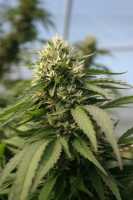
15 Dec Whole-Plant Medical Cannabis Found Beneficial in Study of Childhood Epilepsy
MedicalResearch.com Interview with:
Rayyan Raja Zafar BSc. MSc. MRSB.
Medical Research Council Doctoral Training Partnership (MRC DTP) PhD Candidate
Centre for Psychedelic research & Neuropsychopharmacology
Division of Psychiatry
Department of Brain Sciences, Faculty of Medicine
Professor David Nutt DM, FRCP, FRCPsych, FSB, FMedSci
Faculty of Medicine, Department of Brain Sciences
The Edmond J Safra Chair in Neuropsychopharmacology
Imperial College London
MedicalResearch.com: What is the background for this study?
Response: Since 2018 medical cannabis prescription has become legal in the UK for patients to access. In spite of this legal change less than 3 NHS prescriptions have been made available and access to whole-plant medical cannabis products has been restricted largely to private prescriptions with very few clinicians prescribing such products. There has been a lot of anecdotal and real world evidence of the value of whole-plant medical cannabis in children suffering with treatment resistant epilepsy.
MedicalResearch.com: What are the main findings?
Response: This study assessed a cohort of 10 children with severe epilepsy who were using whole-plant medical cannabis to treat their epilepsy and found across the group it reduced their seizures by 86%. These children also did not respond to the NICE recommended isolated CBD product Epidyolex and were able to reduce their use of AEDs from an average of 7 drugs to 1 following introduction of whole-plant medical cannabis.
MedicalResearch.com: What should readers take away from your report?
Response: We believe that our data on whole-plant medical cannabis in childhood-onset severe treatment-resistant epilepsy, provides evidence to encourage its introduction into the NHS within current NICE prescribing guidelines. Such a move would be hugely beneficial to the families, who in addition to having the psychological distress of looking after their chronically ill children, have also to cover the crippling financial burden of their medication.
MedicalResearch.com: What recommendations do you have for future research as a result of this work?
Response: We will continue to collect data from children with epilepsy who are using medical cannabis to treat their seizures. We are also interested in understanding more about the role of minor cannabinoids and other compounds in the cannabis plant and how these are contributing to the superior effectiveness that we have witnessed over isolated CBD.
MedicalResearch.com: Is there anything else you would like to add?
Response: Access to medical cannabis on the NHS is one of the most pressing matters for these families. With clear evidence of safety and efficacy we encourage doctors who can prescribe these products to review our data and prescribe for patients where they believe benefit can be shown. These medicines have had a truly transformative impact on the lives of these children and their families.
No disclosures
Citation:
-
Medical cannabis for severe treatment resistant epilepsy in children: a case-series of 10 patients
[subscribe]
Last Modified : [last-modified]
The information on MedicalResearch.com is provided for educational purposes only, and is in no way intended to diagnose, cure, or treat any medical or other condition. Always seek the advice of your physician or other qualified health and ask your doctor any questions you may have regarding a medical condition. In addition to all other limitations and disclaimers in this agreement, service provider and its third party providers disclaim any liability or loss in connection with the content provided on this website.
Last Updated on December 15, 2021 by Marie Benz MD FAAD
